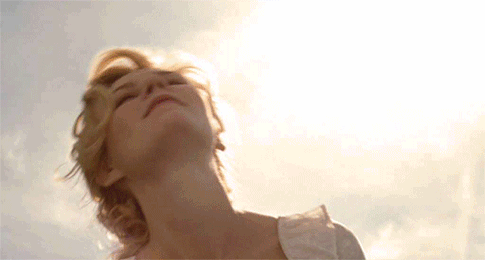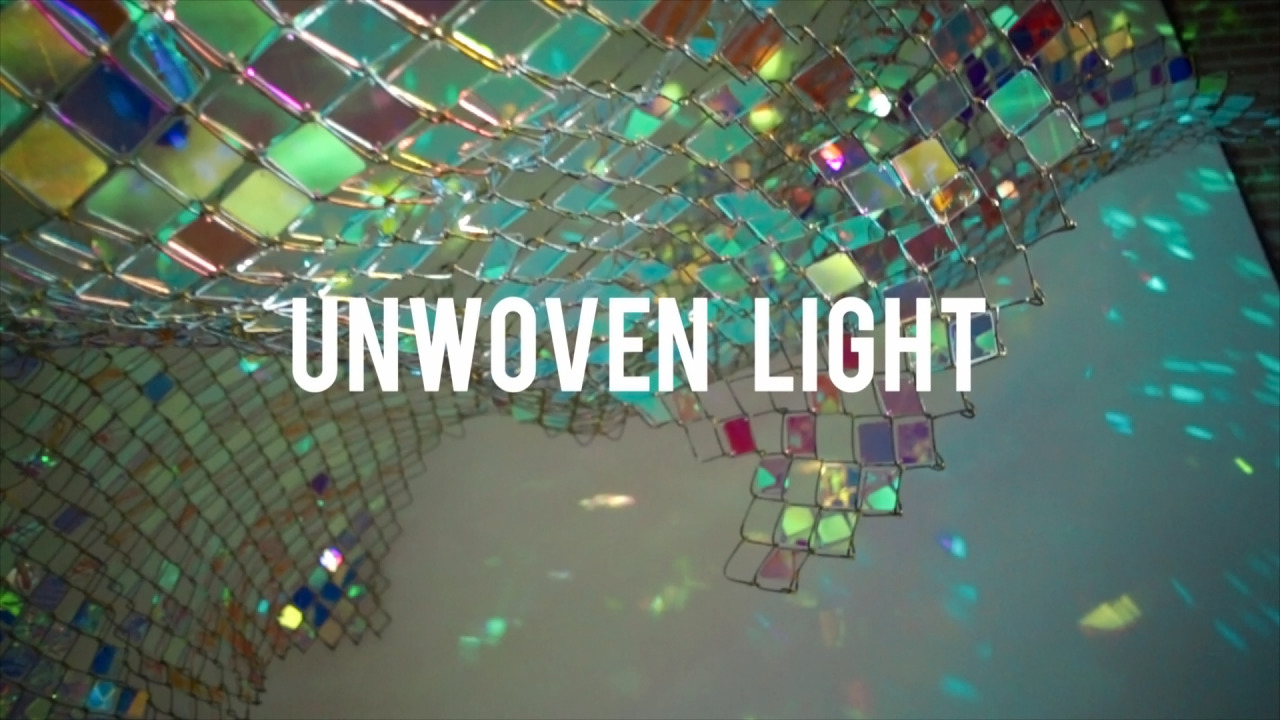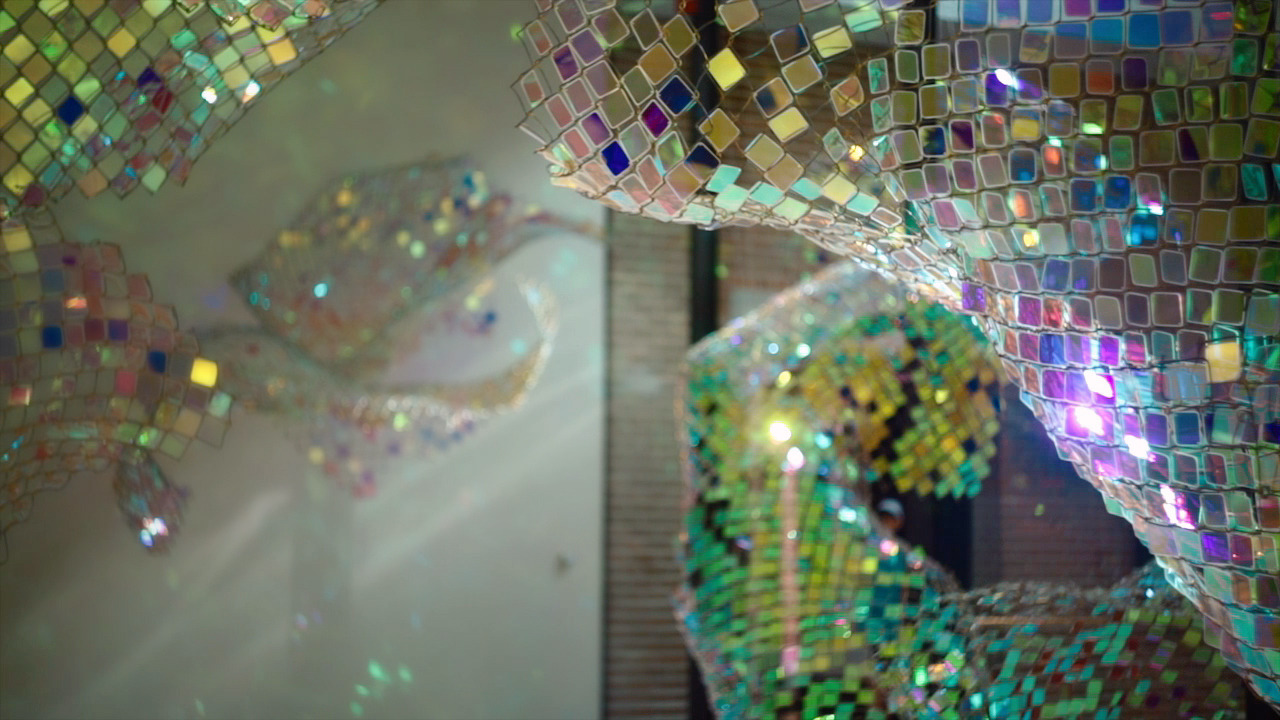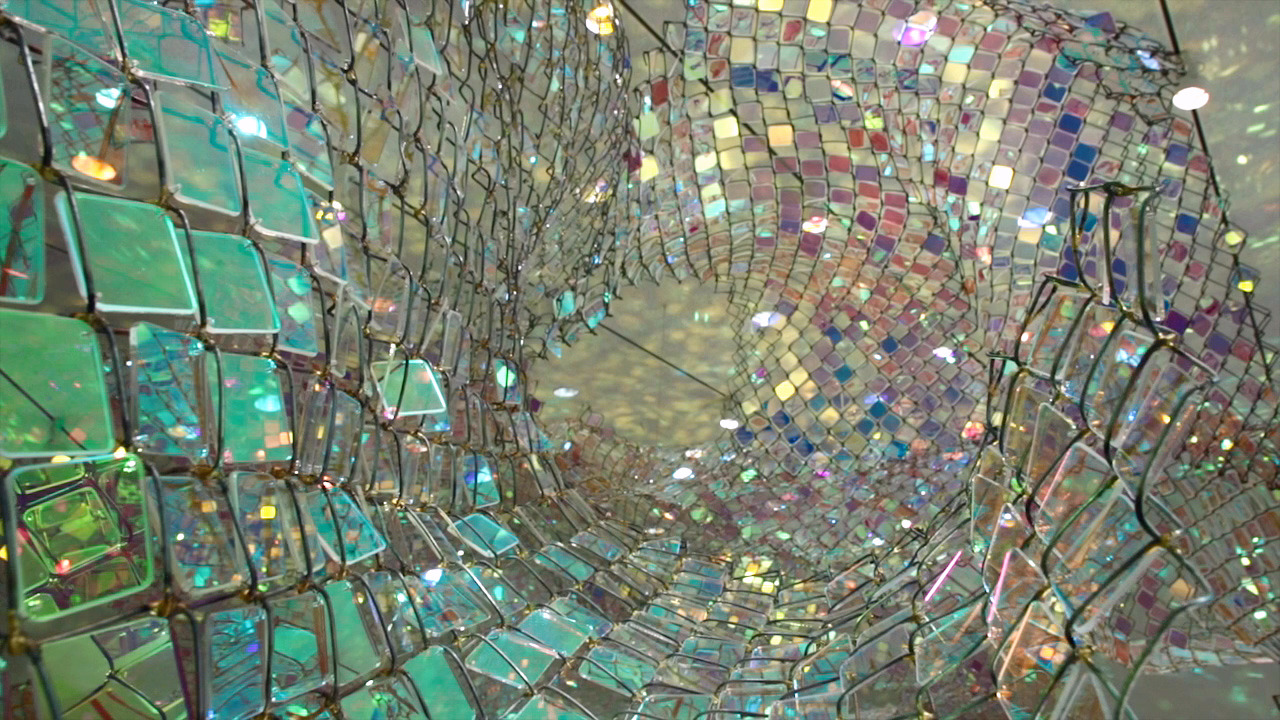Category: Heroes
Soo Sunny Park: Unwoven Light
Meet Dorothy:
Have you ever been stuck in an awkward situation, praying your phone would ring so you could politely extract yourself? Of course you have. That’s why we made Dorothy, a physical trigger that makes any dumb shoe smart. Dorothy consists of the “Ruby” (a small connected device that slips into your shoe) and a mobile App that allows you to trigger a call to your phone from a fake contact (your “boss”) whenever you tap your heels together 3 times. Dorothy can also send text messages to your contacts with a custom message and your current location, letting them know exactly where you are. Soon, we’ll be working toward summoning an Uber.
I can’t even fathom how important this idea could be, how life saving. How many people have been in a situation where a timely phone call could save them from a potentially dangerous situation?
Definitely keeping an eye on this one.
Sofia Coppola
Since watching The Virgin Suicides in high school I’ve been a total sucker for Sofia Coppola movies – she’s one of those would-follow-to-the-ends-of-the-earth, can-do-no-wrong people for me. I’ve had a mini-marathon today under the breeze of the air con as Valencia is a stifling 35 degrees even at 9pm.
Some of my favourite things:
Music – where on earth does she uncover these perfect matches? (Sidenote: just found an interview with her music supervisor Brian Reitzell here)
This single shot:

… that theme of wanting to get in without ever actually getting in (figuratively speaking) is translated to the visual style of the movie as well. Blauvelt and Savides never really pull the camera close to the actors, and even in the occasional close-up, the framing looks very stylized. … We, as an audience, are constantly gazing at the action from a non-participatory position, in a sense becoming voyeurs of the voyeurs (the kids). We gaze at them with a slow, deliberate stare, as they gaze slow and deliberately at the lifestyle of the celebrities. It’s a nice droste-effect that elevates the movie and turns it into a sort of mirror for the audience. … [In this long shot, the] camera remains outside at a distance, completely stationary, save for a slow zoom-in. The shot lasts close to 2 minutes and is almost completely silent.
Light:





How Ira Works
I really enjoyed by Radio courses during my degree, and as a radio student I hold This American Life on an incredibly tall pedestal. I really enjoyed a recent interview with Ira Glass on LifeHacker, particularly his general practice and advice to aspiring journalists/writers:
“I learned my technique from a great print editor named Paul Tough, who was at the New York Times Magazine and Harper’s, and worked with our show a lot in the early years. It’s so basic I worry it doesn’t bear going into here, but just in case it’s handy to another writer or editor, here we go:
When I come out of an interview, I jot down the things I remember as being my favorite moments. For an hour-long interview usually it’s just four or five moments, but if out I’m reporting all day, I’ll spend over an hour at night typing out every favorite thing that happened. This is handier than you might think. Often this short list of favorite things will provide the backbone to the structure to my story.
Then I transcribe the tape or have it transcribed by someone. Getting every word right isn’t as important as having something on paper for each sentence that’s been said, because to make radio stories, you edit by the sentence. For some reason in the radio biz we don’t call these transcripts, we call them tape logs.
Then I print out the log and mark it up. Every possible quote I might use, I write a letter next to, A, B, C, etc. As I do this, on a single piece of paper, I make a list for myself of the quotes. So when I’m done, there’s not just the tape log, there’s a piece of paper with tiny handwriting on it, listing the quotes “A – he describes the old house, B – what it was like the moment he came home, C – his sister warned him,” etc. Any quote that’s especially promising gets an asterisk. Any quote I’m sure I cannot tell the story without gets two asterisks.

The point of this is that it gets all this inchoate material—the sound you’ve gathered—into a form where you can see it all on one page. You see all your options. It’s in a form where your brain can start to organize it. Also, writing the list sort of inserts all the quotes into quick-access RAM memory in your head in a helpful way. I find that the important first step to writing anything or editing anything (half of my day each day is editing) is just getting the possible building blocks of the story into your head so you can start thinking about how to manipulate it and cut it and move it.
Listing the quotes this way is also important because a radio story, unlike other kinds of writing and even other kinds of journalism, is usually structured around the quotes. You organize the beats of your plot around the most compelling moments you have on tape. (Though I learned this from a print journalist so I guess it’s applicable there too.)
Next I stare at my one-page list and think about what would be a fun or compelling beginning. (Okay, I’ve been thinking about that since I decided to do the story but now it’s down to brass tacks: what actually works on tape and what are the many things that I tried that failed?) Usually there are two or three decent options for the beginning of the story and one or two obvious possibilities for how to end it. Then I think about what really are my very favorite moments and what doesn’t need to be in the story. And then I sketch a structure based on my letter code: okay, F is the opening beat, then do C and D and then jump to M and N and end on G. And then I write. Usually my list will include a few extra beats that I’m not sure if pacing will permit. When I get to that spot in the writing, I’ll know whether to include them or cut them.
This technique lets you go from many hours of interview tape to a concise, workable structure very quickly. It’s hard to imagine how you could do it more efficiently.2

I’d just say to aspiring journalists or writers—who I meet a lot of—do it now. Don’t wait for permission to make something that’s interesting or amusing to you. Just do it now. Don’t wait. Find a story idea, start making it, give yourself a deadline, show it to people who’ll give you notes to make it better. Don’t wait till you’re older, or in some better job than you have now. Don’t wait for anything. Don’t wait till some magical story idea drops into your lap. That’s not where ideas come from. Go looking for an idea and it’ll show up. Begin now. Be a fucking soldier about it and be tough.”


